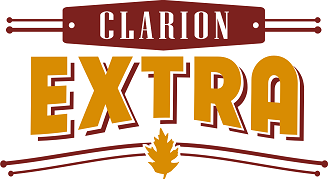By Brett R. Whitling
Staff writer
CLARION – Clarion County Sheriff Rex Munsee is alerting the public to two types of scams which have recently been attempted within the county.
Publisher’s Clearing House has always been a target for scam artists because of the nature of how it works.
A man from Emlenton received a fraudulent check and letter in the mail for $7,936 claiming he had won $2.5 million for second place from Publisher’s Clearing House.
The letter stated the check was included to “cover insurance and attorney fees,” and instruction to contact his “claim manager” before depositing the check.
The letter went on, stating, “Keep all prize information confidential to reduce risk of unauthorized access to claim information,” which includes “discussing the win with third parties until the matters are settled and a press release is issued.”
Another note to mention about the check is the misspelling of California by spelling it “Caliorna.”
Munsee said with scams like this one, the recipient is asked to deposit the check into his or her account and then forward a portion of the money to someone else.
The problem is the check never clears the bank and the recipient is left to foot the bill for the money transfer and fees for over-drafting if their account has insufficient funds to cover it.
Publishers Clearing House itself warns of scams.
On its website, Publishers Clearing House warns a notification is a fraud if:
“If you’re required to wire or pay any amount of money in order to claim a prize, it’s a Publishers Clearing House Scam. PCH sweepstakes are always free to enter, and there is never any fee associated with winning.
“If you’re asked to load up a Green Dot MoneyPak or other money transfer card, in exchange for claiming your prize, it’s a Publishers Clearing House Scam.
“Again, PCH will never ask you to pay a cent to collect a prize.
“If someone tries to contact you in advance regarding a prize delivery, it’s a Publishers Clearing House Scam.
“After all, that would ruin the surprise. For decades, our Prize Patrol has captured the elated reactions of surprised winners and used them in our nationally-televised commercials.
“You’ll know you’re a big PCH winner if you see the Prize Patrol at your front door holding a “Big Check” with your name on it.
“If someone calls you on the telephone claiming to be from Publishers Clearing House and says you have won, it’s a Publishers Clearing House scam.
Do not give them any personal information.As stated above, the Prize Patrol awards all our Big Prizes in person and would never call you to update any personal information in our files.
“If someone claiming to be from Publishers Clearing House tries to send you a friend request on Facebook, it’s a Publishers Clearing House Scam. Even if they are using the name and photo of a prominent PCH employee ?do not believe them. Our PCH employees and official PCH Prize Patrol Fan pages will never private message you on Facebook.
Local caller ID scam
A woman from Strattanville recently received a phone call with the caller ID listed as a local 764 phone number with a name of someone she knows.
Upon answering, the woman was told something about her insurance and to “hit 9 on the telephone.”
Munsee said there is a way for certain scammers to gain your information by pressing a certain number on your phone.
Another woman from Strattanville received the same phone call a day later but from the husband’s name and phone number of the first woman who received the call.
After exchanging information, they contacted the sheriff to report the phone calls.
“If you know the number that shows up and it is not that person on the phone, don’t press any numbers. Just hang up,” Munsee said.
Munsee added it is possible for change the information that shows up on the caller ID and anyone can change the information to show anything.
Munsee said anyone who receives a check they suspect may be fake or a suspicious phone call similar to this situation or asking for information, should contact his office at 226-7611, particularly if the check also comes with a request for money.

